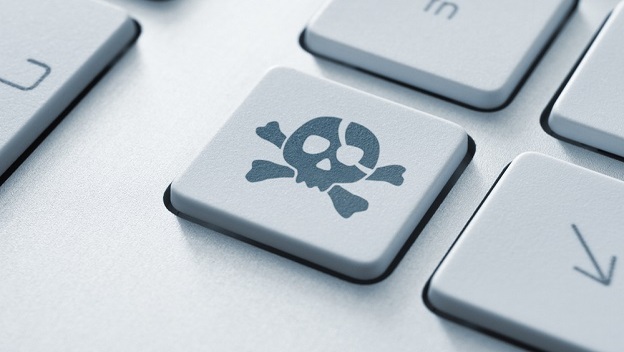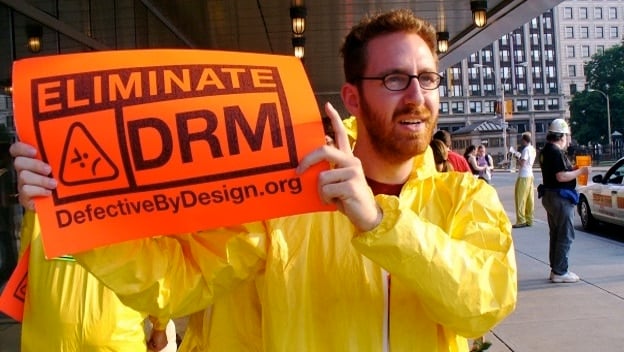Some ideas just stink on ice.
You there. Yeah, I’m talking to you. Did you steal that mouse your holding? How about the monitor, did you pay for that, or snatch it up one night when Best Buy left their back door open? I’ll bet that PS4 behind you is hot too. Does your friend know you ripped him off the day you stole his next-gen system? Frankly, I’m disgusted. It’s pathetic thieves like you that give the rest of us upstanding citizens a bad name. No wonder anti-USA sentiment is on the rise. It’s because of degenerate kleptomaniacs like you! If I were an American bald eagle, I’d likely have a tear running down my beak right now. You sir (or madam as the case may be) make me sick!
You see what I did there? I just made a shit-ton of assumptions about you that were likely unfair, not to mention unjustified. Now ask yourself: “If I wouldn’t let Jason, a guy I don’t even know, treat me like this…why should I turn a blind eye when the gaming industry does the same?”
Believe it or not, that’s exactly what’s happening. If you’ve purchased a game for your desktop or Mac over the last decade or so, you’ve essentially been profiled. Not racially, but ethically. Corporate types assume that, since a few select people choose to steal their entertainment, ALL of us must now be put under the watchful eye of the digital rights management system (or DRM for short). It makes a leap in judgment, painting everyone with the same brush as dastardly ne’er-do-wells and reprobates. This simple piece of software (intended to crack down on anti-piracy) has been a master-class in stupidity since the day it was conceived. While its motivations were sound (I’m all for stopping theft after all), its execution was flawed right from the start. Not only has this done NOTHING to curb the wave of pirated content available on torrent sites and user groups over the years, it’s actually had the opposite effect. Today’s hacker has now become more embolden than ever , often times cracking a game’s engine and posting it online just to see how fast it can be done. In the meantime, legitimate customer’s lives have been turned into a living hell.
Some console users might ask, “Oh come on. You’re exaggerating. It can’t really be that bad can it?”
To them I say STFU. Unless you’ve experience many of these horror stories first hand (all a result of DRM), then you really have no idea. When wanting to play an Xbox or PlayStation release, you need do nothing more than simply pop it into your console. Now imagine a PC gamer attempting the same, but with a slightly more complicated scenario. After building a new rig for example, they’re faced with the chore of transferring their legally acquired CD-Key from one hard drive to the other. Do a basic Google search and you’ll find 100s of titles where the system has not only gotten in the way (making the process a complete nightmare), but in some cases prevented the game they own from ever being played again. You’d think the industry could be a bit more introspective to judge when something is unequivocally broken. However, there have only been a handful of insiders to speak out against DRM over the years (Witcher developer CD Projekt RED being the most vocal). In fact, head of marketing Michal Platkow-Gilewski recently compared this horrendous practice to an assault, stating, “We don’t want to assault anyone…the first rule is we have to treat gamers like we’d like to be treated. We don’t believe in DRM because we hate DRM. It also doesn’t protect, not really. Games are cracked in minutes, hours, or days, but they’re always cracked. If you want to pirate you’ll find a way.”

Albert Einstein said doing the same thing over and over again and expecting different results is the definition of insanity. When it comes to DRM, I don’t think you can get any more bat-shit crazy. The system was invented to stop pirates. It didn’t. Digital Rights was designed as a way to capitalize on lost revenue (the rationale being those who pirate games would now be forced to purchase these titles outright at retailers). They didn’t. When first introduced, the system promised to do no harm to the legitimate PC consumer base. This was also a lie. So if I can see this clearly, and you can see this clearly, does that mean the industry is deliberately wearing blinders? How long do we suffer through this non-sense until someone in a position of power wakes the hell up?
Perhaps if we stood together in a unified front (vowing not to purchase a single DRM based PC title in 2015), I’ll bet the subsequent stock plummet would force them to finally take notice!
Who’s with me?
